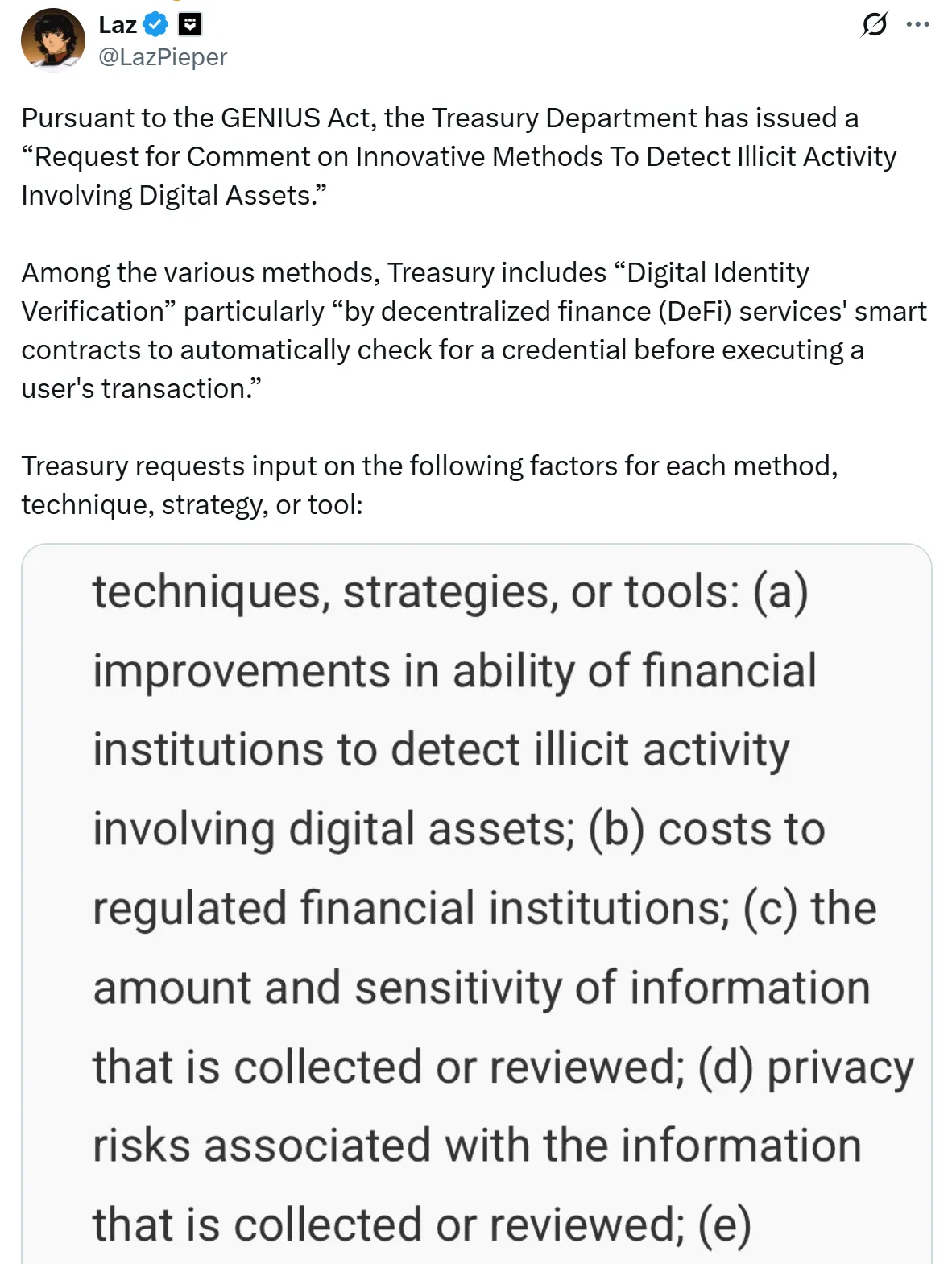🏦 DeFi at a Crossroads: US Treasury Eyes Digital ID in Smart Contracts
-

The US Treasury just dropped a bombshell idea: building identity checks directly into DeFi smart contracts.This comes under the new GENIUS Act, signed in July, which pushes regulators to explore compliance tools to combat illicit finance in crypto markets.
 What’s Being Proposed
What’s Being ProposedEvery DeFi transaction could require verification through:
Government ID
Biometric credential (like facial scan or fingerprint)
Digital wallet certificate
In practice: no ID = no access to the protocol.
Supporters say this is the future of compliance: KYC and AML baked into the blockchain itself.
 The Case For
The Case ForFraser Mitchell (SmartSearch CPO):
“Embedding ID checks can unmask anonymous transactions and keep criminals from laundering money through DeFi.”
Real-time suspicious activity monitoring.
Encrypted, minimal data storage for audits.
Stronger protections against money laundering.
In short: “Make DeFi safe for institutions and regulators.”
 The Case Against
The Case AgainstMamadou Kwidjim Toure (Ubuntu Tribe CEO):
“It’s like putting cameras in every living room.”
Critics argue:
Loss of pseudonymity: Every transaction tied to your real-world ID.
Surveillance risks: Governments could censor wallets or automate taxes.
Exclusion: Billions without formal IDs (migrants, refugees, unbanked) get locked out.
Security risks: Hacks could expose both money and biometric identity.
 Alternatives: Privacy Tech
Alternatives: Privacy TechNot all solutions mean choosing between “crime haven” and “Big Brother finance.” Tools already exist:
Zero-Knowledge Proofs (ZKPs): Prove you’re eligible (e.g., over 18, not on sanctions list) without revealing identity.
Decentralized Identity (DID): Users hold verifiable credentials, disclose only what’s needed.
These could balance compliance with privacy — if regulators are willing to adopt them.
 Big Picture
Big PictureThis proposal is more than compliance — it’s about what kind of financial future DeFi will have:
A permissionless, pseudonymous system where anyone can transact freely?
Or a government-gated system where access requires state-approved ID?
 What do you think:
What do you think:Will embedding ID checks into DeFi bring legitimacy and adoption, unlocking trillions in institutional money?
Or will it kill the core of DeFi, replacing financial freedom with surveillance finance?

















